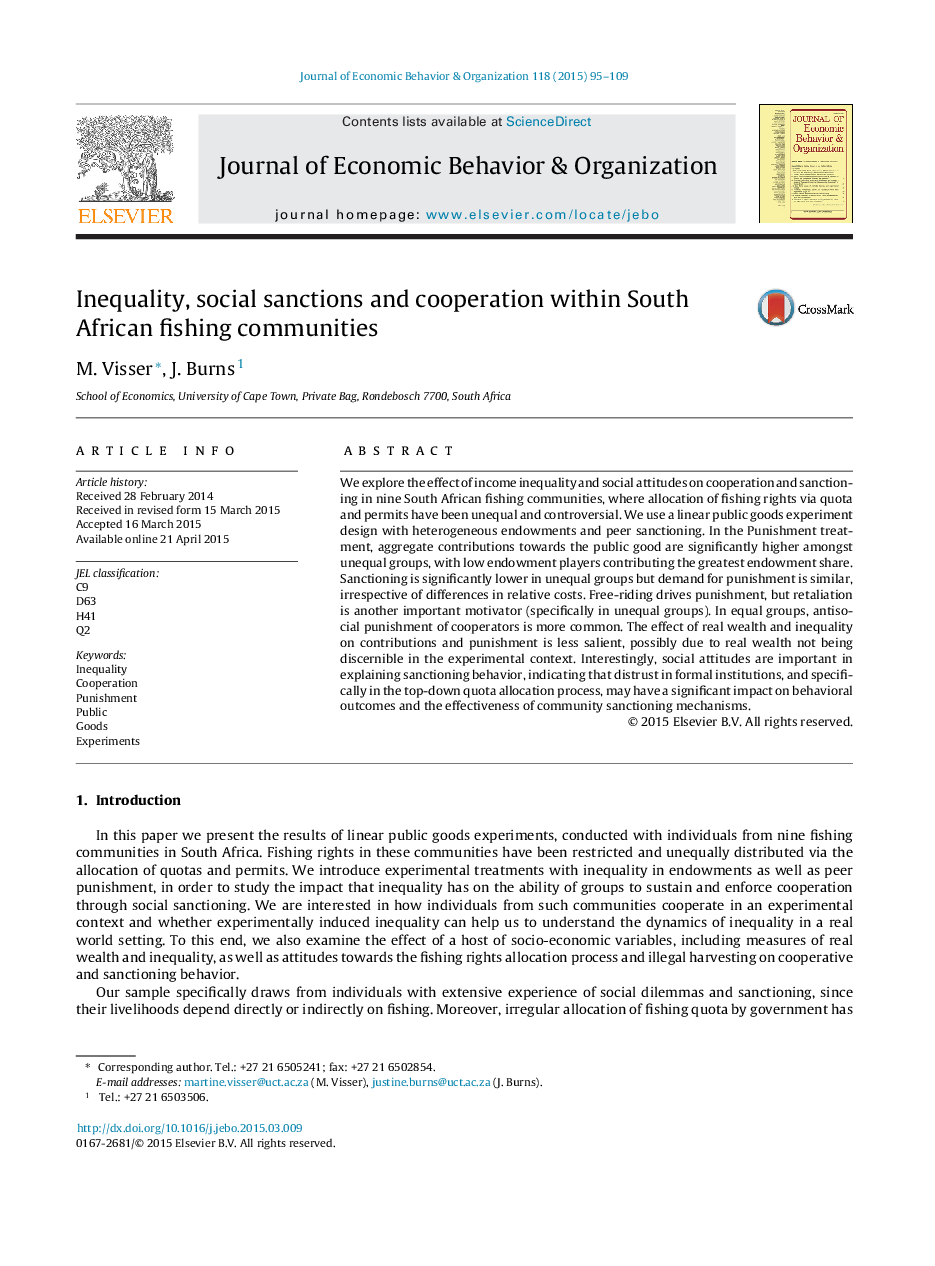| Article ID | Journal | Published Year | Pages | File Type |
|---|---|---|---|---|
| 7242972 | Journal of Economic Behavior & Organization | 2015 | 15 Pages |
Abstract
We explore the effect of income inequality and social attitudes on cooperation and sanctioning in nine South African fishing communities, where allocation of fishing rights via quota and permits have been unequal and controversial. We use a linear public goods experiment design with heterogeneous endowments and peer sanctioning. In the Punishment treatment, aggregate contributions towards the public good are significantly higher amongst unequal groups, with low endowment players contributing the greatest endowment share. Sanctioning is significantly lower in unequal groups but demand for punishment is similar, irrespective of differences in relative costs. Free-riding drives punishment, but retaliation is another important motivator (specifically in unequal groups). In equal groups, antisocial punishment of cooperators is more common. The effect of real wealth and inequality on contributions and punishment is less salient, possibly due to real wealth not being discernible in the experimental context. Interestingly, social attitudes are important in explaining sanctioning behavior, indicating that distrust in formal institutions, and specifically in the top-down quota allocation process, may have a significant impact on behavioral outcomes and the effectiveness of community sanctioning mechanisms.
Related Topics
Social Sciences and Humanities
Economics, Econometrics and Finance
Economics and Econometrics
Authors
M. Visser, J. Burns,
